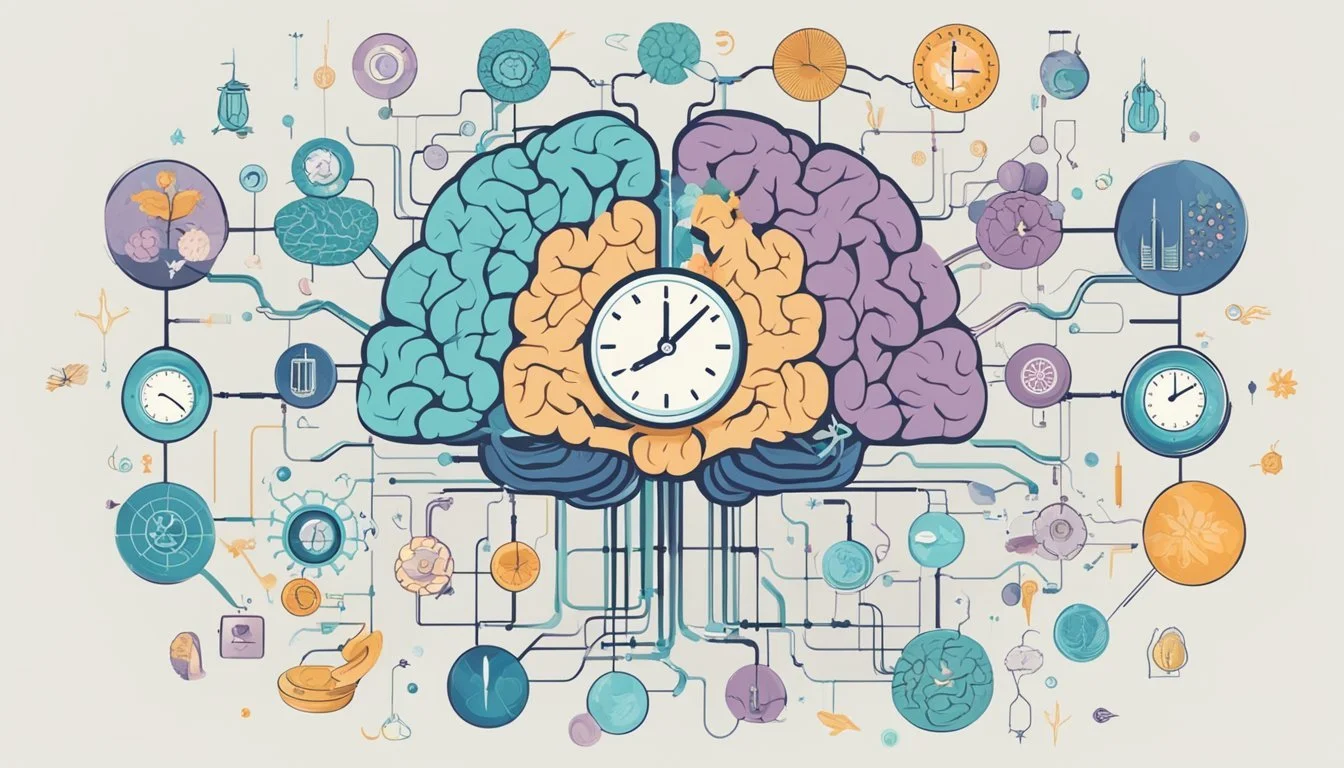Intermittent Fasting and Reproductive Health
Insights from Scientific Studies
Intermittent fasting has gained widespread popularity as a strategy for weight loss, and its impact on various health conditions has been the subject of much research. This dietary approach typically involves cycling between periods of eating and fasting, with the aim of triggering metabolic changes that can lead to improved health outcomes. Proponents argue that intermittent fasting can assist with obesity management, enhance cardiovascular health, and even provide neuroprotective effects. However, despite its benefits, some concerns have been raised about the potential impacts of intermittent fasting on reproductive health.
Clinical trials on humans and numerous animal studies have investigated the effects of intermittent fasting on reproductive hormones, and while some evidence suggests benefits, the implications for fertility remain a contentious topic. Evaluations of intermittent fasting regimens have indicated alterations in reproductive hormone levels, which could potentially influence fertility in women and men. Research findings have shown both positive and negative effects, highlighting the complex interplay between dietary patterns and hormonal regulation. As the nuances of this relationship are further explored, understanding the balance of potential risks and benefits is crucial for individuals considering intermittent fasting for health improvement.
Basics of Intermittent Fasting
Intermittent fasting (IF) is a dietary approach that cycles between periods of fasting and eating. It has been linked to a variety of health benefits, including improvements in blood pressure, heart health, and cognitive function.
Defining Intermittent Fasting
Intermittent fasting refers to an eating pattern where individuals alternate between periods of eating and fasting. It does not prescribe specific foods but rather focuses on when one should eat. This method leverages the fasting period to induce various metabolic changes that may contribute to health benefits.
Types of Intermittent Fasting
Intermittent fasting can be practiced in various forms, each with its specific structure of eating and fasting windows:
Time-Restricted Feeding: This method involves a daily cycle, where the fasting period lasts typically 16 hours, followed by an 8-hour eating window. This form is also known as the 16:8 method.
Alternate-Day Fasting: In alternate-day fasting, individuals alternate between days of regular eating and days where they either fast or consume a significantly reduced amount of calories (typically around 500 calories).
5:2 Fasting: This pattern consists of eating a standard diet for five days of the week while restricting calorie intake to about 500-600 calories for the other two non-consecutive days.
Each type of intermittent fasting aims to create a calorie deficit, which can lead to weight loss and potentially improve various health markers. The choice of method can be tailored to fit an individual's lifestyle, dietary preferences, and health goals.
Intermittent Fasting and Metabolic Health
Intermittent fasting has garnered attention for its potential to improve various aspects of metabolic health, including metabolism regulation, glycemic control, and alterations in body composition.
Effects on Metabolism
Intermittent fasting can influence metabolic health by activating pathways that improve metabolic efficiency and reduce inflammation. Preclinical studies suggest that fasting periods trigger cellular adaptations that can increase mitochondrial efficiency and stimulate autophagy, a process that removes damaged cells and contributes to better cellular function.
Influence on Blood Sugar Levels
Fasting regimens have demonstrated a capacity to modulate blood sugar levels, improving insulin sensitivity in the process. Clinical trials show that intermittent fasting can lead to reductions in fasting insulin and glucose levels, indicating an improvement in the mechanisms that manage blood sugar, thus potentially reducing the risk of developing diabetes.
Impact on Weight and Body Composition
Multiple human studies have linked intermittent fasting with weight loss and improvements in body composition. The practice often leads to a decrease in body fat percentage while preserving lean muscle mass. Moreover, intermittent fasting can positively impact those with obesity or overweight, as it is associated with reductions in body mass index (BMI) and can thus play a role in mitigating related health issues like metabolic syndrome and high blood pressure.
Reproductive Health and Intermittent Fasting
Intermittent fasting has become a significant dietary approach often sought for weight management and health improvement. However, its impact on reproductive health, particularly hormone levels related to the menstrual cycle and fertility, has been an area of active research and discussion.
Women's Reproductive Health
Intermittent fasting can lead to changes in several sex hormone levels that are crucial for women's reproductive health. Studies have shown a possible reduction in hormones such as estradiol and progesterone, which play a vital role in the menstrual cycle and ovarian function. Fluctuations in these hormones may affect the regularity of menstrual cycles and, consequently, overall reproductive health.
In women with polycystic ovary syndrome (PCOS), intermittent fasting may influence androgen markers, including testosterone. Elevated androgen levels are a hallmark of PCOS, and intermittent fasting could potentially help in managing these hormones, although more targeted research is necessary to understand this relationship fully.
Fertility Considerations
When it comes to fertility, the balance of hormones like estradiol, progesterone, and dehydroepiandrosterone (DHEA) is critical. They are key for maintaining a healthy pregnancy and for the process of ovulation. Since intermittent fasting can alter these sex hormone levels, its effects on fertility are a concern, though the degree to which fertility might be impacted can vary widely among individuals.
For those considering pregnancy or experiencing fertility issues, understanding intermittent fasting's potential effects on reproductive hormones is essential. Speaking with a healthcare provider can help to navigate these concerns, especially for perimenopausal individuals or those with underlying hormonal conditions like PCOS.
Intermittent Fasting and Hormonal Impacts
In analyzing the impacts of intermittent fasting (IF) on hormonal health, recent research has highlighted its nuanced effects on sex hormones and the body's hormonal response. These findings have various implications for both male and female reproductive health.
Hormonal Response and Adaptation
Intermittent fasting initiates a complex hormonal response. Typically, it activates the hypothalamic-pituitary-adrenal (HPA) axis, leading to increased secretion of cortisol. This adaptation is pivotal in mobilizing energy reserves during fasting periods. However, overactivation of the HPA axis may interfere with the balance of reproductive hormones such as progesterone and estradiol.
Hormones like Dehydroepiandrosterone (DHEA), which serve as precursors to sex steroids, may also be impacted by IF. Fluctuations in DHEA are suggestive of alterations in the wider hormonal milieu, potentially influencing the synthesis of more potent androgens and estrogens.
Sex Hormones and Fasting
Intermittent fasting has been identified to influence sex hormone levels differently in males and females. Research shows a decrease in testosterone levels in men, which can affect reproductive functions. Furthermore, reduced testosterone may be accompanied by changes in related androgens like androstenedione.
For women, IF might lead to changes in estradiol and estrone concentrations, impacting the menstrual cycle and fertility. Observations also include potential variations in progesterone, a key hormone in the regulation of the menstrual cycle and maintenance of pregnancy. These hormonal alterations can be especially significant in women with underlying health conditions.
However, the full extent of these changes and their long-term implications on reproductive health need further exploration through comprehensive human trials.
Long-Term Effects and Aging
Intermittent fasting (IF) impacts the aging process and may influence longevity by modifying key biological mechanisms such as stress resistance and inflammation. These changes can potentially enhance life quality in latter years.
Fasting, Longevity, and Aging
Fasting strategies like intermittent and periodic fasting could potentially extend lifespan through effects on systems governing aging and disease risk factors. Research has shown that fasting can activate stress resistance pathways, leading to decreased oxidative stress and inflammation, which are factors intimately connected with aging. Reduced caloric intake during fasting periods is linked not only to weight loss but also to the potential for a longer, healthier life. Studies in animal models have suggested that lifespan can be extended due to the metabolic and physiologic benefits that arise from regulated fasting.
Autophagy and Cellular Repair
Autophagy is a process of cellular self-cleansing; it's crucial for the removal of damaged proteins and organelles, playing a significant role in maintaining cellular health. During fasting, autophagy rates increase, leading to enhanced cellular repair and maintenance. This uptick in autophagy due to reduced protein intake helps counteract the effects of aging by reducing the accumulation of damaged cellular components, which, if left unchecked, contribute to various degenerative diseases. It's a critical mechanism by which fasting could be implicated in promoting a healthier, more robust aging process.
Intermittent Fasting and Disease Prevention
Intermittent fasting (IF) has been associated with multiple health benefits, particularly in disease prevention. Scientific research indicates that IF may contribute to reduced risk of various conditions, with notable influence on cancer prevention and cardiovascular health.
Cancer Prevention
Research reveals that intermittent fasting might lower the risk of developing certain types of cancer. Animal studies suggest that IF can reduce the incidence of cancer, and while this evidence is less definitive in humans, there is a potential link to decreased breast cancer risk. Evidence:
A study indicated that IF could modulate the risk factors related to cancer development, such as inflammation and insulin resistance.
Another suggested that IF might affect cancer progression through changes in hormones and growth factors.
Cardiovascular Health
Intermittent fasting's impact on cardiometabolic health is significant. Clinical trials have shown positive outcomes for cardiovascular disease markers:
Cholesterol: Reductions in LDL cholesterol and triglycerides were observed, indicating a beneficial effect of IF on lipid profiles.
Blood Pressure: Many participants experienced lower blood pressure as a result of IF.
Cardioprotection: Long-term adherence to IF may enhance heart rate variability and overall cardiac function.
While the data available is promising, further research is necessary to confirm these potential benefits and understand the long-term effects of intermittent fasting on disease prevention.
Psychological and Neurological Consequences
Intermittent fasting has been shown to impact brain function and mental health. Peer-reviewed research suggests notable changes in cognitive performance and neuronal resistance due to fasting practices.
Cognitive Function and Brain Health
Intermittent fasting has been associated with neuroprotective effects. Research indicates that such dietary patterns can lead to improvements in brain diseases, which are a significant cause of death and disability. Specifically, intermittent fasting may enhance cognitive function by increasing neuronal resistance to stress, thus potentially offering therapeutic benefits for brain-related diseases.
Studies highlight that intermittent fasting can influence glucose metabolism in the brain, which has a direct impact on cognitive performance. For example, an 8-week alternate-day fasting regimen led to a significant decrease in fasting glucose levels in adults with obesity, which could suggest improved brain metabolism and function.
Mental Health and Mood
The relationship between intermittent fasting and mental health reveals a complex interplay. While the practice can lead to physiological benefits that might positively affect mood and psychological well-being, the full extent of these effects and their impact on mental health require further study.
Certain studies have drawn attention to potential mood enhancement during intermittent fasting. However, it's crucial to note the absence of significant research into the long-term effects of fasting on mental health, and thus the approach should be considered carefully, particularly among those with pre-existing mental health conditions.
Challenges and Considerations
When exploring intermittent fasting's impact on reproductive health, researchers must account for varying levels of dietary compliance and the complex interactions between fasting, medications, and pre-existing health conditions.
Dietary Compliance and Sustainability
Success in intermittent fasting is partly dependent on an individual's ability to consistently adhere to the diet, known as compliance. Studies show that long-term compliance can be challenging for participants due to lifestyle factors and the restrictive nature of fasting schedules. This is particularly relevant to reproductive health, where consistent nutrient intake may play a crucial role. Additionally, sustainability of the diet over time is a paramount concern, as interruptions or deviations can impact study results and the healthspan of participants.
Interactions with Medications and Health Conditions
Intermittent fasting can interact with medications, necessitating careful consideration and continuous monitoring by healthcare professionals. For example, fasting may alter drug metabolism, affecting efficacy and safety. The diet's impact on hormones may also complicate conditions like polycystic ovarian syndrome (PCOS), which is sensitive to changes in insulin and reproductive hormones. Moreover, intermittent fasting's role in reducing cardiometabolic risk must be weighed against potential negative effects on reproductive hormone levels and overall reproductive health.
Emerging Research and Future Directions
Recent research has centered on the mechanisms and outcomes of intermittent fasting on reproductive hormones, but much remains to be explored, particularly in specific human demographics and through the lens of clinical applications.
Animal and Human Studies
Animal models, particularly mice, have been instrumental in advancing the understanding of intermittent fasting's molecular mechanisms on reproductive health. These studies have laid the groundwork for human trials by elucidating the biochemical pathways influenced by calorie restriction. Human studies have started to build on this foundation, but there is still a need for a wider demographic inclusion in the research, especially within the New England Journal of Medicine that could provide authoritative benchmarks for the scientific community.
Clinical Implications and Future Research
Moving forward, the focus should be on translating the findings from animal studies and preliminary human research into clinical applications. Future research needs to include perimenopausal and postmenopausal females, as well as exploring intermittent fasting's impact on women with PCOS. A thorough understanding of the molecular mechanisms behind intermittent fasting will be crucial for developing guidelines that maximize health benefits while mitigating risks to reproductive health in both humans and animals.
Conclusion
Research indicates that intermittent fasting (IF) can have an influence on reproductive health, although the full spectrum of its effects remains to be comprehensively understood. Studies suggest that modifications in the gut microbiome through fasting may impact reproductive hormone levels in both men and women, potentially leading to health benefits, particularly for women experiencing menopausal transitions.
In terms of hormonal changes, literature reviews reveal that IF might decrease androgen markers, such as testosterone, in humans. Nevertheless, the broader implications of these hormonal adjustments on long-term reproductive health require further investigation.
The sustainability and long-term feasibility of intermittent fasting as a lifestyle, as well as its health implications, are still under scrutiny. While animal studies and short-term human trials provide encouraging data, particularly for weight management and metabolic improvements, the longevity of these benefits is yet to be confirmed through extended human trials.
It is imperative to tailor intermittent fasting approaches to individual health needs and consider potential reproductive health alterations. Individuals interested in IF are advised to consult healthcare providers, especially in the context of pre-existing health conditions or fertility considerations.
Given the complexity of interactions between diet, gut microbiota, and hormonal balance, any definitive statements on intermittent fasting's impact on reproductive health warrant cautious delivery, ensuring they are grounded in ongoing and emerging scientific research.










